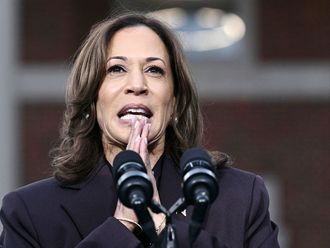Dilma Rousseff's economic team reassures suddenly nervous investors that it will indeed stick to fiscal and monetary rectitude
In 2002, as Luiz Inacio Lula da Silva, once a firebrand union leader, headed for Brazil's presidency as the candidate of the left-wing Workers' Party (PT), foreign investors pulled out and rich locals sent their savings abroad. But in the weeks after he was elected, Lula quickly settled nerves. He named Henrique Meirelles, a former international banker, to run the Central Bank. And his pick for finance minister, Antonio Palocci, announced a tighter fiscal policy even before Lula took office.
This year as Lula's protegee, Dilma Rousseff, dominated the election campaign, the continuation of market-pleasing macroeconomic policy was widely taken for granted. In her victory speech on October 31, Rousseff promised to cut taxes, rein in public spending and control inflation.
But some among the bankers and business people in Sao Paulo, Brazil's financial capital, have become increasingly anxious for reassurance. The weeks since the election have seen frenzied speculation, leaks and counter-leaks in the media as to who will get what job in the new government. On Wednesday came the first appointments — and some soothing messages.
Rousseff is to keep as finance minister Guido Mantega, who has been in the post since 2006. He is from the PT's "developmentalist" wing, which sees a big role for state-owned companies and government intervention. During the credit crunch he ramped up public spending. As the election approached, the rise in spending continued (federal spending has increased by 27 per cent so far this year), justified as pro-development rather than counter-cyclical. There was also some creative accounting, as government loans were channelled through the National Development Bank (BNDES) to keep them off the books.
The spending binge has caused the economy to overheat, pushing up inflation. The futures market is forecasting that inflation will soon go above 6.5 per cent, the upper limit of the Central Bank's target.
That puts pressure on Alexandre Tombini, Rousseff's nominee to head the Central Bank. A first test for Tombini after Rousseff takes over on January 1 will be whether he raises the benchmark rate to curb inflation.
The appointment of Miriam Belchior, a confidante of the new president, as planning minister suggests that Rousseff intends to be closely involved in economic policy herself. And the message of fiscal restraint will be reinforced if Palocci gets a top job in the presidential palace, as seems likely.
Temporary measure
Some analysts worry that the supposedly temporary measure will never be reversed, but will instead join a host of other Brazilian taxes introduced in haste and paid at leisure. Although government revenues are rising strongly, Rousseff has spoken of funding better health care by bringing back a tax on financial transactions, which was not renewed after a rare tax-revolt in Congress in 2007. Many Brazilians will be eager to hear what, if any, taxes she proposes to cut or eliminate.
Few of Rousseff's allies in Congress really want a smaller state. On paper she has a powerful grip on the legislature, with over 70 per cent of the lower-house and a majority of the senate backing her coalition. But her nominal backers will not give her an easy ride.
On November 17, the biggest of the PT's coalition partners pressed its claims to a good haul of ministries with the announcement that it was talking to four of the smaller parties about forging a blocão (big block) of 202 seats in the lower house. That angered the leaders of the PT, against whom it seemed to be directed. Lula swiftly stepped in and smoothed things over — for the time being.
But it would be easy to overstate both the problems facing Rousseff and the odds that she will fail to solve them.
Forming a government is always hard in Brazil, as the president must balance regional and sectoral interests as well as those of myriad parties.
A big coalition, like Rousseff's, can make things harder, as ministries and jobs must be shared out among more competing hands. Since both inflation and the strong real are caused by growth, they are the sort of problems that many governments elsewhere would love to have.
Above all, Rousseff will surely be mindful of the example of Lula, who entered office facing far more serious doubts about his fiscal rectitude — and is about to leave it as probably the most popular president in Brazil's history.









